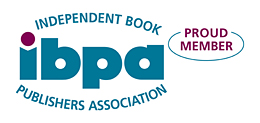There are several considerations for finding the right editor — or editors — to perform the alchemy of refining a manuscript from lead into gold.
Let’s take a look first at the types of editors and what they can do for your manuscript.
Why Dilettante Press Doesn’t Provide Editors
Traditional publishers have in-house editors. That’s their business model: they invest in your book, so you work with their team. Some author-funded presses also provide editing by staff or freelancers and build the cost into their packages.
That’s not our model. At Dilettante Press, editing is your choice, not ours. Here’s why: it’s your book, your money, and your name on the cover. You should be free to choose an editor who works for you — not one bundled into a package. Editing prices vary by genre, manuscript length, and editor experience. Platforms like Reedsy let you compare proposals, review samples, and test the waters with a trial edit before committing. Yes, it’s more work. Yes, it’s more responsibility. But when readers pick up your book, they’re not blaming the publisher if it falls flat — they’re looking at your name. That’s why this step belongs to you.
Editorial Assessment
An editorial assessment is a professional overview of your manuscript’s strengths and weaknesses. It’s not a line-by-line edit but a big-picture evaluation. Think of it as diagnostics before treatment.
For traditional publishing hopefuls, this step is even more valuable. Agents and acquisition editors expect clean manuscripts that tell the story, but they’re not looking for polished perfection — that comes in-house. In this case, look for an editor with acquisitions experience, someone who knows what makes a manuscript stand out at the submission stage.
Developmental Editing
A developmental editor looks at the big picture: structure, pacing, character arcs, and clarity of argument (for nonfiction). If your story feels wobbly or readers aren’t connecting, this is the stage that helps you tighten and reshape it.
The right developmental editor doesn’t just point out flaws — they help you see possibilities. A strong one knows your genre, understands what readers expect, and can guide you toward a manuscript that works as a whole.
Copyediting and Line Editing
Once the big-picture issues are resolved, it’s time to refine at the sentence level. Line editing sharpens style, rhythm, and readability. Copyediting handles correctness and consistency — grammar, punctuation, spelling, and usage.
This is where your voice gets clarified, not erased. A good editor will polish your work so readers can focus on the story, not the stumbles.
Fact-Checking (Optional but Important)
Not every book needs this, but some absolutely do. Nonfiction, memoir, history, or technical writing often requires a dedicated fact-checker. Even novelists might need it if their story leans heavily on real-world medicine, law, or history.
A professional fact-checker protects both you and your book’s credibility. Don’t assume every editor offers this service — many don’t.
Proofreading
This is the final polish before your book goes to print or publication. A proofreader catches typos, formatting slips, and those last-minute errors that sneak through every other stage.
It’s never wasted money. For self-publishing authors, skipping proofreading is the fastest way to end up with a book that looks amateurish.
How to Find an Editor
Once you know the kind of editor you’re looking for, the next step is finding the right one. There are a few practical avenues worth trying:
- Marketplaces like Reedsy. These sites let you browse vetted professionals, see their backgrounds, and request sample edits.
- The Editorial Freelancers Association. The EFA maintains a directory of independent editors, proofreaders, and publishing professionals. You can filter by genre, specialty, and service type, then reach out directly. Unlike Reedsy, it’s not a managed marketplace, so you’ll need to do more legwork to vet candidates — but it’s one of the oldest and most reputable professional associations out there.
- Community recommendations. Ask your local writer’s club, critique partners, or social media groups. Be specific — an editor who shines in romance might not be the best fit for your sci-fi novel.
- Due diligence. Always ask for a sample edit and references. Pay attention to how they communicate — clarity and respect for your voice matter as much as technical skill.
Hiring an editor is like finding a babysitter: you don’t want to trust just anyone with something this important. Ask about past projects and request references.
Here are some questions worth asking any editor you’re considering:
- What type of editing do you specialize in (developmental, line, copy, proof)?
- Do you have experience with my genre or subject matter?
- Can you provide a sample edit on a few pages of my manuscript?
- How do you typically give feedback — inline notes, summary letter, tracked changes?
- What’s your pricing structure (per word, per hour, flat fee)?
- How do you handle scheduling and turnaround times?
- Will you respect my voice, or do you tend to rewrite?
- Can you provide references from past clients?
- Do you offer contracts or written agreements outlining scope and cost?
Caveat Emptor
Not everyone calling themselves an editor is worth your trust — or your money. Some are tied to vanity presses that make big promises but deliver little more than a bill. Others advertise “editing” but only run your book through software or give it a quick proof.
A real editor will be transparent about their process, provide references or samples, and respect your voice. If it feels too good to be true, it probably is.
Closing Thought
Editing isn’t cheap, and it shouldn’t be. But finding the right editor at the right stage is what turns a manuscript into a book readers can trust — and love.









